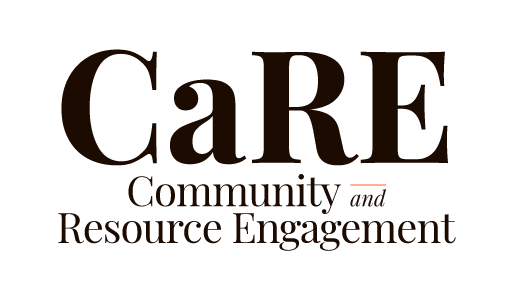Helping Older People who Hoard
Helping Older People who Hoard

- State or territory SA, TAS, VIC, WA, ACT, NSW, NT, QLD
- Type of program Online, Workshop
- Sector relevance Home and community care, CHSP providers
- Topic relevance Mental health
Webinar overview
The Royal Commission into Aged Care Quality and Safety identified mental health and or hoarding as an issue that needed to be addressed in the development of a new aged care system highlighting the need for training, raising awareness and care management planning.
This webinar will teach attendees how to work with, support and assist older people living in challenging domestic environments, giving the aged care worker awareness, confidence and strategies for speaking with and supporting the older person in a way that minimises harm and fosters a positive and helpful outcome.
This webinar is an introductory session designed for people who have a supportive working relationship with older people including case workers, support workers, carers, health practitioners and aged care workers including supervisors, team leaders, and coordinators of aged care services.
This session will also help workers to develop a positive relationship with the older person living in a challenging domestic environment despite the sensitive issues they may need to address.
Topics include what is hoarding (including how to tell when its likely not a hoarding disorder), why people hoard, psychology behind hoarding and clutter, triggers and signposts, dangers, risk minimisation, reducing anxiety and stress and establishing and maintaining positive and productive relationships.
Options for sourcing additional assistance for clients, finding services and resources, and exploring funding options will be present in the subject matter.
Who should attend?
Commonwealth Home Support Program (CHSP) staff, including aged care workers, team leaders, case managers, coordinators, support workers, social workers, and health practitioners.
The outcomes are:
- raising awareness of hoarding
- understand why people hoard
- the psychology behind hoarding and clutter, triggers, signposts, dangers, risk and harm minimisation
- establishing and maintaining positive and productive relationships
- confidence to support the older person to address the issue in their home
- exploring funding options, and finding resources and services.
Date: 25 November 2025
Time: 11am-1pm AEDT
Ageing Australia member price
1-2 people: $299 incl. GST each
3-10 people: $269.10 incl. GST each
Non member price
$478 incl. GST each
CHSP price
$50 incl. GST each
Note – Registration is one ticket per participant and all participants are required to access training on individual devices.
Date: 17 February 2026
Time: 2-4pm AEDT
Ageing Australia member price
1-2 people: $299 incl. GST each
3-10 people: $269.10 incl. GST each
Non member price
$478 incl. GST each
CHSP price
$50 incl. GST each
Note – Registration is one ticket per participant and all participants are required to access training on individual devices.
Disclaimer: The CHSP provider ticket price is subsidised by sector support and development (SSD) funded by the Australian Department of Health and Aged Care. Although funding for this session has been provided by the Australian Government, the material contained herein does not necessarily represent the views or policies of the Australian Government.
Who is facilitating?

Rebecca Mezzino
Rebecca is one of Australia’s most experienced Declutter Coaches and has been helping people to simplify their lives for over 19 years. Specialising in complex cases, Rebecca works primarily in the fields of disability, ageing, neurodiversity and mental health.
An expert in teaching people how to have a positive relationship with their belongings, Rebecca is a sought-after media source, industry mentor, speaker, trainer and counsellor.
Testimonial
“The session expanded my understanding of the reasons why people display hoarding behaviours as well as related mental conditions.”
“Well laid out and easy to understand and really informative.”
“I found it helpful to change my language when speaking about hording and people with hoarding behaviours. It is something that I am going to take back to my team to help educate them.”
Booking terms and conditions
Ageing Australia is committed to respecting the privacy of its customers and stakeholders and adheres to the Australian Privacy Principles as set out in the Privacy Act 1988 (Cth) and the Privacy Amendment (Private Sector) Act 2000 (Privacy Act). The Australian Privacy Principles govern the way in which we collect, use, disclose, store, secure, and dispose of your Personal Information.
A copy of the Australian Privacy Principles is available here: https://www.oaic.gov.au/
Ageing Australia’s Privacy Policy
Photographs and video footage may be taken during an Ageing Australia event or training session for Ageing Australia promotional purposes including social media, publications or communications. If you do not want your image used, please advise us via writing.
Utilising the contact details provided to Ageing Australia from time to time, the learning and professional development team will send out information on upcoming training opportunities in a direct electronic message. If you do not wish to receive this information and prefer to ‘opt out’ – email and we will remove you from our waiting lists and email communications database.
Cancellations, refunds, substitutions and transfers
Ageing Australia’s learning and professional development (L&PD) products are delivered subject to sufficient registrations, as stipulated by available tickets against each event, and tickets can be purchased directly from the what’s on page.
Training session viability of each advertised session is assessed one week prior to the scheduled date of delivery, when a decision is made regarding continuation or cancellation. When a training session is cancelled due to insufficient numbers or circumstances outside of the control of Ageing Australia, a full refund will be paid, directly to the customer who has made the initial purchase.
A full refund is also available if a participant withdraws from a training session, five or more days prior to the session being delivered, on the condition, that the customer has contacted , to inform regarding their intention to withdraw. No refunds or transfers will be considered without notification prior to the commencement of a training session. Late notifications will be considered on a case-by-case basis.
An organisation may choose to substitute a participant of a previously paid session, by emailing , 24 hours prior to the commencement of the training session. Full details of the substituted participant must be provided.
Payment terms
It is a condition of registration that participants pay full payment at the time of booking via credit card or by invoicing by prior arrangement. All payments must be finalised prior to commencement. Registrants who have outstanding payments will not be able to participate. Upon registration, a tax invoice will be emailed to the person making the booking.
Aligns to the following strengthened Aged Care Quality Standards
- Standard 1 - The individual
- 1.1 Person-centred care
- 1.2 Dignity, respect and privacy
- 1.3 Choice, independence and quality of life
- 1.4 Transparency and agreements
- 1.1 Person-centred care
- Standard 3 - Care and services
- 3.1 Assessment and planning
- 3.2 Delivery of funded aged care services
- 3.3 Communicating for safety and quality
- 3.4 Planning and coordination of funded aged care services
- 3.1 Assessment and planning

